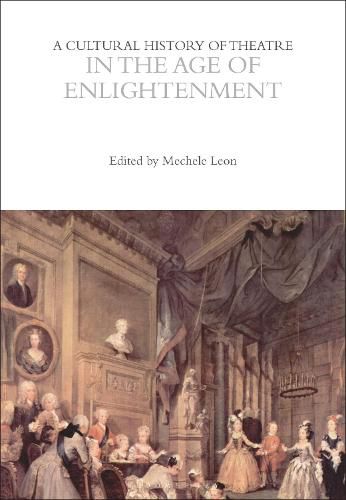Readings Newsletter
Become a Readings Member to make your shopping experience even easier.
Sign in or sign up for free!
You’re not far away from qualifying for FREE standard shipping within Australia
You’ve qualified for FREE standard shipping within Australia
The cart is loading…






French philosopher Jean-Jacques Rousseau wrote, ‘the general effect of the theatre is to strengthen the national character to augment the national inclinations, and to give a new energy to all the passions’. During the Enlightenment, the advancement of radical ideas along with the emergence of the bourgeois class contributed to a renewed interest in theatre’s efficacy, informed by philosophy yet on behalf of politics. While the 18th century saw a growing desire to define the unique and specific features of a nation’s drama, and audiences demanded more realistic portrayals of humanity, theatre is also implicated in this age of revolutions. A Cultural History of Theatre in the Age of Enlightenment examines these intersections, informed by the writings of key 18th-century philosophers.
Richly illustrated with 45 images, the ten chapters each take a different theme as their focus: institutional frameworks; social functions; sexuality and gender; the environment of theatre; circulation; interpretations; communities of production; repertoire and genres; technologies of performance; and knowledge transmission.
$9.00 standard shipping within Australia
FREE standard shipping within Australia for orders over $100.00
Express & International shipping calculated at checkout
French philosopher Jean-Jacques Rousseau wrote, ‘the general effect of the theatre is to strengthen the national character to augment the national inclinations, and to give a new energy to all the passions’. During the Enlightenment, the advancement of radical ideas along with the emergence of the bourgeois class contributed to a renewed interest in theatre’s efficacy, informed by philosophy yet on behalf of politics. While the 18th century saw a growing desire to define the unique and specific features of a nation’s drama, and audiences demanded more realistic portrayals of humanity, theatre is also implicated in this age of revolutions. A Cultural History of Theatre in the Age of Enlightenment examines these intersections, informed by the writings of key 18th-century philosophers.
Richly illustrated with 45 images, the ten chapters each take a different theme as their focus: institutional frameworks; social functions; sexuality and gender; the environment of theatre; circulation; interpretations; communities of production; repertoire and genres; technologies of performance; and knowledge transmission.